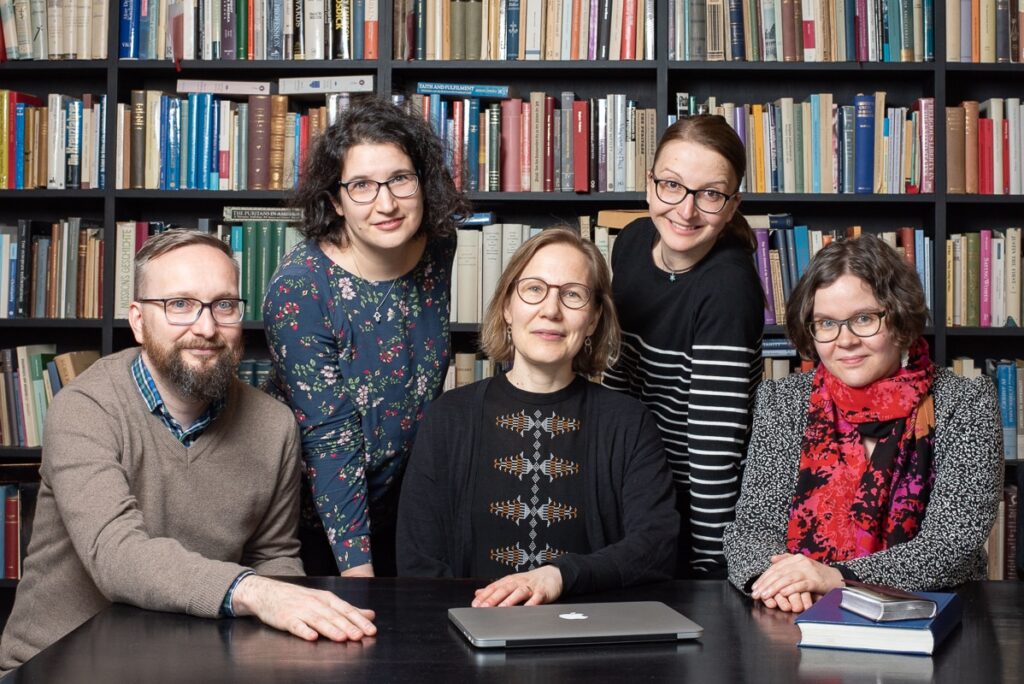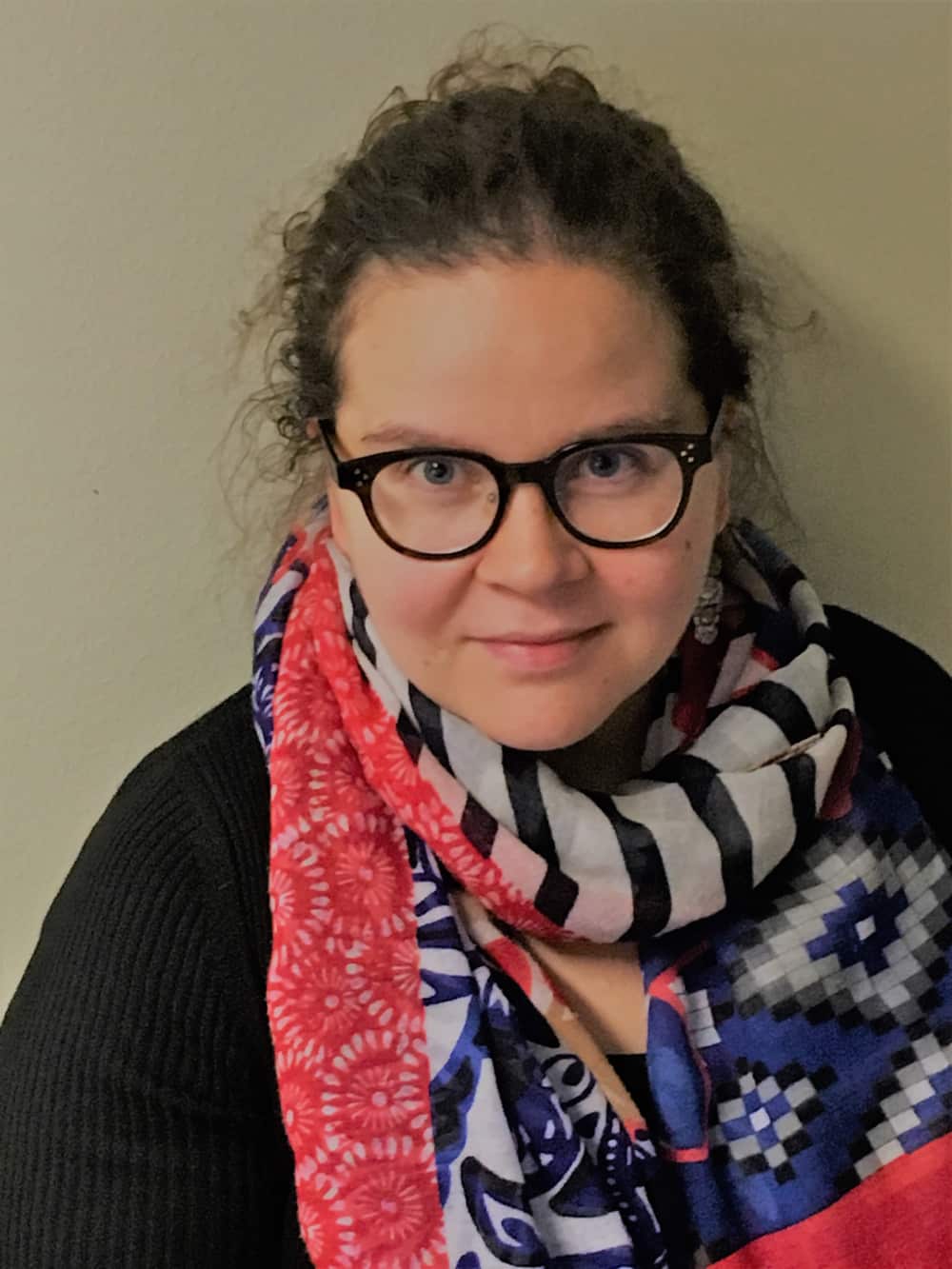Boundaries of Jewish Identities in Contemporary Finland – “Minhag Finland”

Contact: minhag@abo.fi
The project examines central ideas of boundaries as they are negotiated and interpreted among Jews living in Finland today, compares the emerging patterns with Nordic counterparts and renews the international research front by challenging perceptions that currently guide research on minority ethnic and religious identities. It ties on to recent developments within the research on vernacular religion and on identity and change in Jewish communities worldwide, creating previously unexplored possibilities for Nordic comparison.
The aim is to explore and explain contemporary Jewish vernacular religion in light of the challenges set by the fluctuating religious landscape of 21st century Finland, in comparison with Nordic contexts. Thus, the research strives to demonstrate how the case of Finland contributes to the theoretical and methodological development of the international research field.
The research group works in close cooperation with Nordic research networks in the field, including e.g. Forum for Jewish Studies at Uppsala University, The Norwegian Center for Holocaust and Minority Studies, Oslo, and the Center for Jewish Thought in Modern Culture, University of Copenhagen
Minhag’s publications can be found here. A presentation of the project with publications in AboCris can be found here.

Docent Ruth Illman, PI
As the leader of the research project, Dr. Illman works with a case study that develops the overarching theoretical and empirical assumptions proposed by the research project as a whole. Illman focuses on issues of interreligious relations as well as the internal diversity of the Jewish community and its relationship to secularised Finland and place these findings within a Nordic scope. She is the director of the Donner Institute for Research in Religion and Culture, related to Åbo Akademi. For more information about her research and publications, see: https://www.donnerinstitute.fi/en/ruth-illmans-research/

Docent Simo Muir, Vice-Director
Simo Muir is the Vice-Director of the research project. Together with Riikka Tuori, he conducts a case study called “Minhag Finland” exploring the liturgical practices in contemporary Finland and their historical development. Based on archival research and interviews, it outlines how the customs were formed, tracing origins, historical and societal aspects and intra-Jewish developments in the European context, e.g. influences from different regions, from various ideological and theological movements as well as the encounter with contemporary secular society.
Muir’s research interests include the Jewish minority in Finland, particularly its cultural, historical and linguistic traits, and how the cultural, political and religious ties to Eastern European Jewry have formed the communities in Finland. Currently, he focuses on issues relating to liturgical development and rabbinic authority in Finland, based on network analysis and ethnographical research. He has previously worked at e.g. the University of Helsinki, University of Leeds and University College London.

MA Mercédesz Czimbalmos
Mercédesz Czimbalmos is a doctoral student in Comparative Religion at Åbo Akademi University. Within the project she works with a case study related to her doctoral thesis, entitled “Intermarriage and conversion”. The study focuses on intermarriage and conversion among Finnish Jewry, analyzing changes in marriage patterns in a historical light via archival research and current discourses around the topic through ethnographic research methods.
Czimbalmos has a background in Jewish Studies, Comparative Religion, Cultural Studies and Japanese Studies. Her research interests include contemporary Judaism as well as intercultural and interreligious encounters.

PhD Dóra Pataricza
Within the research project, Dóra Pataricza conducts a case study entitled “Foodways”. The case study aims at researching the boundary negotiations connected to the multi-ethnic culinary traditions of Jews living in Finland, whose culinary traditions have been shaped by influences from different time periods, cultures, geographical regions and traditions. Pataricza is especially interested in the religious, emotional, ethical and practical aspects evoked when engaging with foodways, in everyday life as well as during festivals and holidays.
The project explores archival sources to form an understand of which culinary traditions the first Jewish families who settled in Finland brought with them, e.g. how they related to and applied the kosher rules. Ethnographic data is also gathered to shed light on how Jewish foodways have changed in today’s multicultural Finland. Pataricza is a doctor of Classical Philology from the University of Debrecen, Hungary and has previously worked at e.g. the University of Helsinki.

Dr Riikka Tuori
Together with Simo Muir, Riikka Tuori is responsible for the case study “Minhag Finland” researching how the distinct Finnish-Jewish liturgical practice has developed over time, in dialogue with the specific context of everyday life in Finland.
Riikka Tuori is University Lecturer of Middle Eastern studies at the University of Helsinki, where she teaches e.g. Modern Hebrew, Judaism and Jewish history. Her particular research interests include the Karaite Jewish minority, Jewish liturgy and literary traditions. She is an expert on rabbinic and medieval Hebrew texts and traditions. For more information, see: https://tuhat.halvi.helsinki.fi/portal/en/person/rtuori

